In the latest installment of our CS Ops interview series, we spoke to Deborah Andrews, Customer Office Operations Director at Unit4. Deborah has over 15 years of experience managing CS, Support, and Operations teams in companies such as Gainsight and Salesforce.
Currently, Deborah specializes in CS Ops at Unit4, a software company that designs and delivers enterprise software, ERP applications, and related professional services for people in service organizations.
Here’s my conversation with Deborah about transitioning into CS Ops, the skills you need to succeed, the CS Ops function at Unit4, and more.
. . .
How did you make it into CS Ops? What has that journey been like?
I have around 15 years' worth of CRM, customer-related experience, with about five to six years in CS, and I’ve done about three years specifically in Customer Success Operations. So, the path just flowed into itself. Due to that experience, my progression into CS Ops felt completely natural from a skills perspective.
In my early career, I held a combination of technical and operational management roles, mainly surrounding Salesforce implementations. I was riding the wave of Salesforce back when they weren't quite as gargantuan as they are today. When I was implementing Salesforce, it spanned multiple functions, and that gave me a solid grounding in hands-on, technical, analytical, project management, and administrative skills. But most importantly, it gave me great exposure across all functions within a business–which is the context you need to look at things from an outside-in or customer perspective.
What also made the transition to CS Ops a perfect fit for me was that, in companies such as Sage and Gainsight, I’d worked as a CSM. That complemented the operational skills that I already had with regard to best practices and standards from a CSM perspective.
Also, I became an advocate of Customer Success across the industry. So when CS Ops became a thing, I was actually ready and almost waiting for it–ready to walk into it and hit the ground running.
It's been interesting to ride the waves of every evolution of Customer Success, and I see CS Ops accelerating and elevating itself in line with CS.
Have you always known that CS Ops was for you?
Having worn many hats with the Salesforce implementations, I had to develop a combination of core skills–I've never been a pure play analyst, techie, or manager–I've always been zooming in and out. I think it's how I am by nature.
What people tend to find is that they get siloed into either a function or a specific role with the job description, and they stick within the realms of that. So CS Ops has been great because it tends to be more expansive. So there's beauty and also a curse in some of this–you could get involved in too many things, or you could end up not getting enough exposure to give you the breadth you need to be successful.
For me, it was a natural progression from CRM, Operations, and technical management, into what it actually means for things to work in the context of the customer. Being customer-facing with on-ground operational knowledge opened up situations and experiences for me that made me think: This should be repeatable, there should be standards, and we should be doing this consistently to prove our worth and value.
I never looked at CS Ops as a career choice from an analyst/project management/technical perspective. What attracted me to the role is that you can mold it how you need it to be for your customers. I think the key is that you understand your customers' needs and fulfill them in line with the business goals.
Can you give us an example of what you mean when you say you can mold your role based on customers' needs?
What attracted me to this role at Unit4 specifically was that the Global Head of Customer Success was looking for a business partner–not someone who would just deliver what was asked.
It was really about them having someone to partner with at an operational level to identify how to get better, faster, and stronger in delivering against customers' needs while also taking the customer on that journey with us.
This meant identifying and working with internal stakeholders to ensure that we move not just the CS function but the entire organization forward and improve the customer experience as a result.
The way that the role was pitched and presented was attractive. It helped me understand that I wouldn’t be hired just to deliver. That's a core requirement, but I'll get to define what good looks like.
And that means working with the organizational stakeholders to understand:
- What the organization was missing collectively
- What insights the org needed from the processes and data available
- What triggers and actions were required to be able to keep people aware of the customer situation
- How to rally around risk management processes
- How to proactively monitor product adoption and other kinds of motions,
So it has been an expansive role that spans the entire breadth of the organization. It takes an army, but there are allies that you need to create within the organization to make it work. Because ultimately, it's the customer experience that you're looking to optimize.
Who would you say are these allies within the org?
So this is interesting. And many people will resonate with this. Every year, as CS matures, we find that we need to be BFFs with a certain department.
I remember, one year, it was Sales–from an expansion and outcome achievement standpoint. The next year, it was Marketing–we were driving advocacy and growth. And then the year after, it was Product, to ensure that customers adopt the product so we could retain them. Then the next step was Revenue Operations because we needed to prove our impact on the bottom line and NRR.
So, basically, CS management and CS Ops need to be BFFs with the entire organization. That's the conclusion to that story!
What is highlighted to a lot of organizations is that CSMs manage their book of business and that they're responsible for customer engagement. But there's only so much they can do.
We need an operational layer focused on customer centricity–driving the experience and underpinning it.
Would you say there are specific skills or personality traits that predict someone's success in CS Ops? You said that your expansive experience helps you do your role better. Is that what companies look for when they're hiring for CS Ops roles?
I think it depends on the role. But suppose you want to be an impact player within CS Ops. In that case, I think we need to look at a combination of things:
- You need a vision and an understanding of what the organization is trying to achieve in terms of the customer experience. So there's a leadership piece.
- Then there's the project management piece–you need to ensure that you’re executing against what you've said you would deliver to the business and link it back to how the business operates.
- Some roles will have a higher degree of technical skills – you might be an administrator of a CS tool, or managing a team within IT. Either way, you need to be confident talking about technical items and deliverables.
- There’s an analyst part as well–you need to analyze the business pain points in relation to the customer experience and find the solution that actually delivers the expected results. So it's not just about ticking the box and deploying solutions; you will be consistently driving expected results.
- Performing root cause analysis is becoming quite a point of emphasis for CS Ops roles. Certainly, in Unit4, it's how we're maturing. We have proactive engagements and some consistency surrounding that. But then you need to be able to identify what we are learning, and look through the feedback and the voice of the customer, to help inform the strategy.
- And then, finally, the administration part of it that often gets put to the wayside: You need to make sure you're setting KPIs, ensuring solution adoption, and enabling people to be successful in their roles.
Aside from these skills, you need empathy. CS Ops, for me, is transformation, and to approach it the right way, you must do it with a degree of empathy.
I've learned over the years that you can deliver the greatest ideas and tools–but if you're not talking in a language that your internal stakeholders understand, your chances of adoption and success are very, very low.
To take them on the journey with you, you need a level of direction, a level of empathy, and a lot of passion.
Are there solid steps or approaches that people can use to foster the right culture for CS Ops?
You need a degree of sponsorship in the organization. There's a call to action across the CS industry itself to say that everything needs to come from the top. I'd say it's quicker and easier to be an impact player if you're in a smaller organization. That certainly was the case when I was doing CRM implementations in my early days.
Now, I'm working with much more complex organizational structures on a regional and functional basis. So gaining that level of sponsorship is absolutely necessary. Once you have that in place, it's about elevating the voice of the customer.
We can follow all the project management protocols, practices, and principles we want, but everything ultimately needs to map back to the customer’s voice. That's what CS Ops is focused on–nothing more, nothing less.
My advice would be to not overstep in terms of telling others how they should manage things in their function. That can create friction quite quickly. But you could relay a customer story, feedback, or a pain point, and gain buy-in through that storytelling motion. We have a ‘Voice of the Customer’ council that's spearheaded by CS Ops. Every month, we pull our key stakeholders into a meeting where we relay the voice of the customer, what we're hearing from them, and then, have an open discussion where we can be honest and transparent and say, “This is what's causing an issue for us, this is the impact, and this is what we need”.
That helps to inform the strategy at a functional level. If you want to gain buy-in and take people on that journey with you, it has to be about improving the customer experience.
Just backing up a bit, you mentioned KPIs and metrics. Do you have metrics that you track for CS Ops?
Not specifically for CS Ops. But because we're underpinning on driving consistency for Customer Success motions, every initiative has a set of KPIs. These KPIs will be driving the behaviors across Customer Success.
For example, if we implement a risk management framework and identify high-risk customers, we'll be tracking and trending the volume of at-risk customers, how long they are in that status, what the traction is, the cadence of engagement to reduce or mitigate that risk, etc.
These behavioral KPIs at the organizational level add up to business outcome metrics like NRR, churn rates, or expansion/advocacy motions. So we work closely with Marketing to identify customer advocates and references. We perform reference health checks every quarter to ensure that customers are in a good state and that they’re not over-served or fatigued. We also track KPIs like what percentage of our customer base is currently referenceable, etc.
Do you see CS Ops getting some metrics or KPIs for themselves in the near future?
Yes, but I think that will be in terms of deliverables mostly.
I see CS Ops as a change management or transformation function. So I wholeheartedly think we should have an agile roadmap where we can say, “In Q1, we're delivering X, and this is the quality criteria, sign off,” etc.
So we should be held accountable from a project delivery perspective.
The way that I set the OKRs and targets within the Operations team is always in relation to the Customer Success KPIs–making sure that we have the right insights and dashboards for the team leads to monitor their teams appropriately. The emphasis isn't so much on us–we just keep the rhythm going. Our KPIs would be more at that operational level, like data quality items required to ensure that these initiatives are underway.
I guess it also depends on the level of maturity of the function, what it already has, and how it works. The value is in making sure that we deliver an impact that's valuable to the business.
How is the CS Ops team or function organized at Unit4?
We're fairly lean on the Ops side of things. We're very resourceful in that we can pull in resources to help us depending on the needs of the business. It’s a lot like a Success Engineering motion. If we need a certain expertise, we request that. For example, an analyst within the data team would help us build something we need. We are really focused on innovation as well as BAU (business as usual). We're like a management layer, so to speak.
Currently, I head the CS Ops team and the Digital Customer Success team. From an operational perspective, we are responsible for ensuring that the BAU environment is working efficiently and delivering as expected, and also innovating through the use of tools or best practices to ensure that the business stays on point.
The team that I have works in sprints. As requirements come in and priorities are set, we identify the best person to deliver. And I think that gives people quite a bit of exposure, so we’re not siloed into one specific area. CS Ops could mean absolutely anything in terms of the journey that Unit4 is on at the moment. Maybe we will get to a point where we need specific people in specific seats, but at the moment, it is quite a varied role, and I think people are enjoying the challenge and the variation of it.
So does that mean you don't have specialists right now and everyone dons multiple hats?
Absolutely. There are specialists in the organization that we can tap into, of course. For example, when we were building a roadmap and strategy for re-implementing the Customer Success tool, we collaborated with the IT team. But we also have configuration expertise from a technical perspective within the CS Ops team. And to be honest, any of us in the CS ops team could make configuration changes. It's a very cross-skilled and adaptive environment. If there’s something of interest to someone, we let them take that journey and learn.
We also have analytical projects like segmenting the customer base, creating or defining the journeys for Digital CS, workshopping across the organization to map the customer journey, implementing the customer listening posts through survey programming, managing the NPS program, building out and optimizing health measurement, rolling out a risk management process, designing templates for success plans, or business reviews.
The level of activity and involvement that we have is quite vast. These processes aren't nailed down to a degree, but for now, we'll continue as we are. If there's a need to specialize, and people want to do that, we will by all means consider that.
So how many people are on the team?
I've got six people on the CS Ops team and six on the Digital Customer Success team. There's quite a similarity between managing customer journeys and CS Ops programs, which is how I've got the two teams under me. And while we are a very lean team, we've done very well to deliver the velocity and success that we have today with these people.
But I could boil that down to the fact that it is a cross-skilled environment. We don't have people sitting on a bench, waiting for data activity to happen or waiting for the next project to come in. It's about being really agile and figuring out our priorities and choosing the right people. I think that's ultimately actually going to help the evolution of CS Ops here and the impact that it has moving forward.
What advice do you have for someone from CS who wants to break into CS Ops? And for someone who has not been in a customer-facing role and wants to try CS Ops?
I actively look for volunteers across the CSM function and other areas who can help add value and exposure. It's really good to get their perspectives as well.
There are always those who want to lean in and be impact players–they have the assigned book of business, but they just want to move into Ops and gain that cross-skilled perspective.
My advice for folks wanting to break into CS Ops is this: Take every opportunity that you can, whether or not you're in CS, to build connections with the people in your organization who could help you. Put your hand up and say you’re interested in learning more, and I'm sure there will be opportunities for you.
The last two CSMs I brought in didn't have any form of CS experience. So I just want to highlight to people out there: you don't have to have CS-specific experience. I didn't have any either, I was doing CRM implementations, and that just naturally lead to moving into a customer-facing role.
So never say never. It is more about the qualities that you display and the perspective you have.
I’ve heard many people say, “I've always been in CS; I just never had that title”.
The same goes for Operations from a Customer Success perspective.
If you are process-oriented, data literate, like technology, and are intrigued by innovation, that is all you really need.
When you talk to people or network, or when you put forward your CVs, your experience should expose areas where you've provided solutions to customer challenges or identified pains in the customer journey. You should be able to articulate how that impacted the customer. It could also be about internal employees or whoever you were engaging with on a day-to-day basis–peers, people you’re delivering reports for, people you’re supplying analysis to, etc.
You can put these skills in the context of how you operate in a business. And that is fully translatable and transferable to a Customer Success environment–as long as you're looking at things from a customer's perspective.
What do you foresee in and for the CS Ops field?
This is where it gets really exciting for me. It’s amazing to see how many people are talking about CS Ops, the impact it’s having, and the traction it’s getting.
I think organizations today are acutely aware that NRR will be their lifeblood over the next few months or years. The focus is turning towards CS to retain and expand existing accounts. Where CS Ops fits into this, and where it will accelerate, is in the areas of organizational transformation.
We need to be BFFs with Finance, Marketing, and Sales since we are talking about significant change management and transformation–on all levels. CS Ops is in the best position to drive business change with the focus and speed the organization needs.
The beauty of CS Ops is how it can help you drive retention and expansion at scale–removing excess, optimizing processes, driving consistency, automating touch points, etc. There are many benefits from a scalability perspective; we can reduce overheads or generate annuities that can be reinvested into the business to make us smarter and faster.
The only caveat I must include is this: We must ensure that everything we facilitate in terms of experiences and outcomes is linked to business outcome metrics. If we don’t do that, we will be unable to prove the impact and value of what we offer. And that’s what is needed to ensure that the business recognizes it and sees Operations and CS as the key drivers toward sustainable growth.
Do you have any advice for CS Ops folks looking to help their companies tide over the imminent phase of challenges and uncertainty?
It is a sensitive time, there are a lot of changes happening, and we’re in survival mode.
But if you keep everything in the customer experience perspective, that’s always going to resonate – no one can argue with that.
Use facts and data to back up your voice, but make sure you have a voice and an avenue to talk to the business and work with them.








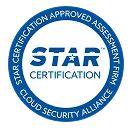
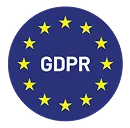
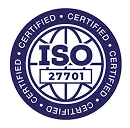









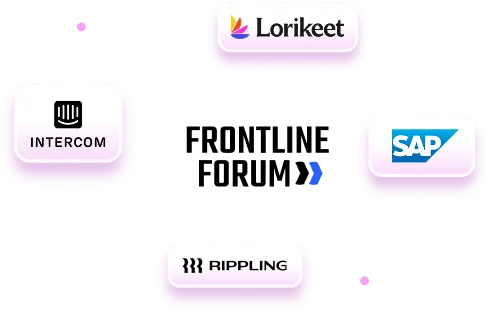
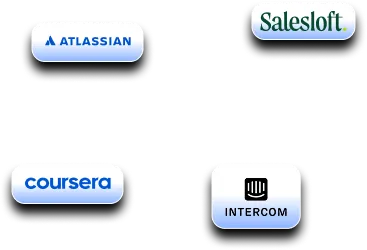


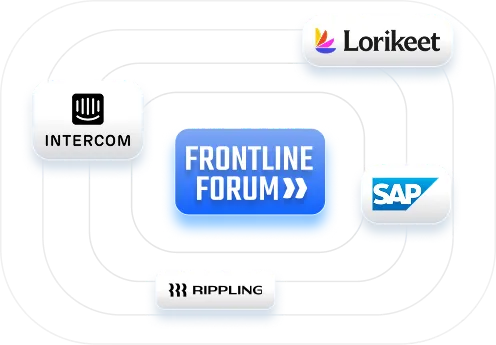
.webp)